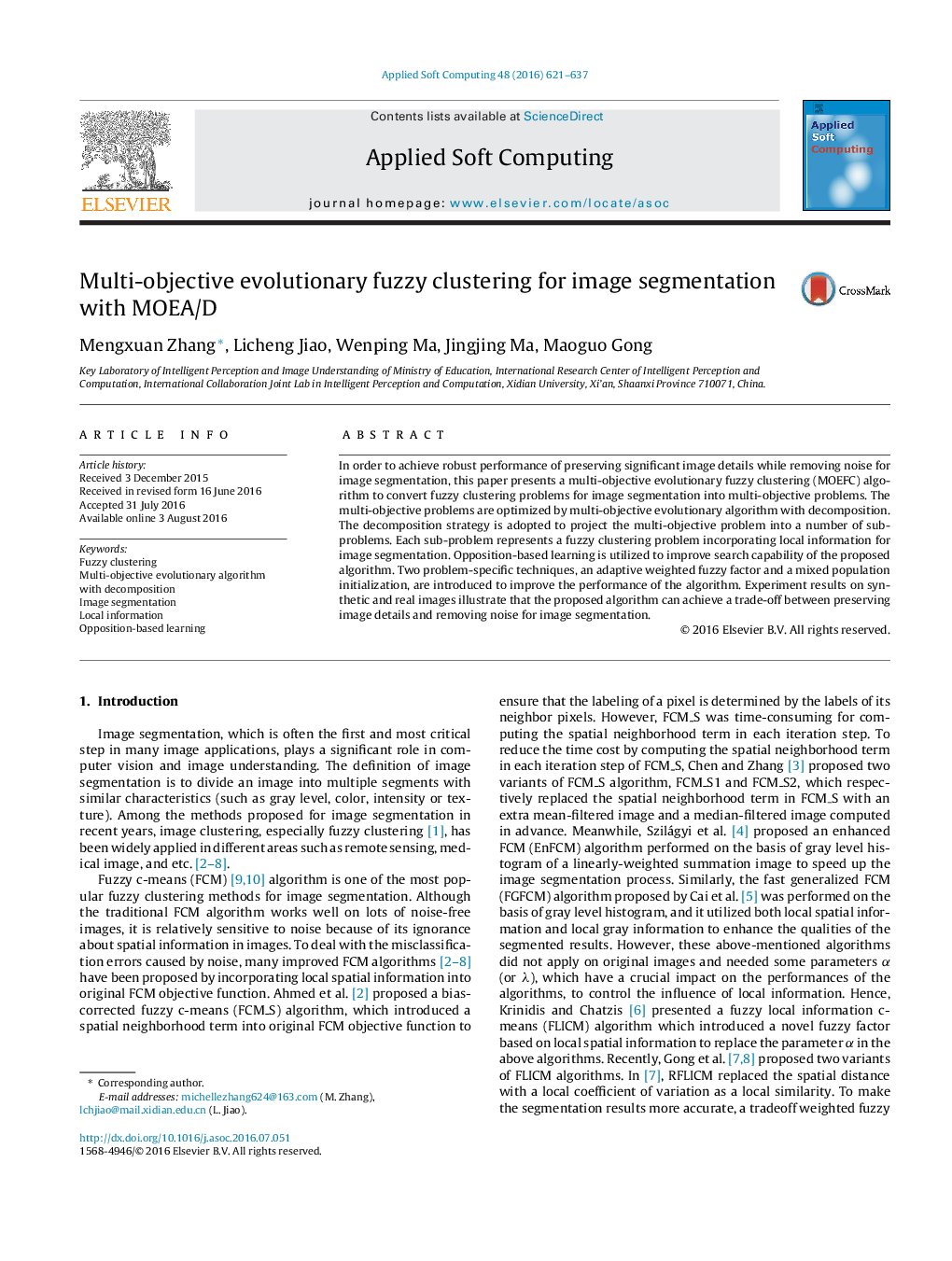| Article ID | Journal | Published Year | Pages | File Type |
|---|---|---|---|---|
| 494574 | Applied Soft Computing | 2016 | 17 Pages |
•The proposed algorithm can preserve image details while removing noise for image segmentation.•Two problem-specific techniques are introduced to achieve well performance for image segmentation.•OBL is used in multi-objective optimization to achieve optimal solutions with a better convergence speed.
In order to achieve robust performance of preserving significant image details while removing noise for image segmentation, this paper presents a multi-objective evolutionary fuzzy clustering (MOEFC) algorithm to convert fuzzy clustering problems for image segmentation into multi-objective problems. The multi-objective problems are optimized by multi-objective evolutionary algorithm with decomposition. The decomposition strategy is adopted to project the multi-objective problem into a number of sub-problems. Each sub-problem represents a fuzzy clustering problem incorporating local information for image segmentation. Opposition-based learning is utilized to improve search capability of the proposed algorithm. Two problem-specific techniques, an adaptive weighted fuzzy factor and a mixed population initialization, are introduced to improve the performance of the algorithm. Experiment results on synthetic and real images illustrate that the proposed algorithm can achieve a trade-off between preserving image details and removing noise for image segmentation.
Graphical abstractFigure optionsDownload full-size imageDownload as PowerPoint slide
